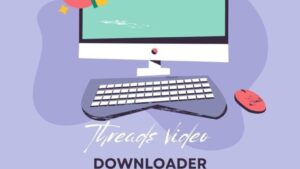
Unsecured debt can be a significant burden, affecting your financial stability and peace of mind. Effective financial planning is crucial to manage and eliminate this type of debt. This article provides actionable strategies to help you regain control of your finances.
Dealing with unsecured debt requires a clear and structured approach. Without the right plan, you may find yourself overwhelmed by high interest rates and mounting balances. The following strategies aim to equip you with the tools necessary to effectively tackle and ultimately get out of unsecured debt.
Understand your debt situation
First, you need a comprehensive understanding of your current debt situation. List all your debts, including their interest rates, minimum monthly payments and outstanding balances. Knowing the exact figures helps in formulating a realistic repayment plan. During this phase, it is also essential to identify which debts are the most pressing based on interest rates and terms.
Once you have a clear picture, consider researching the finest debt relief options available as part of your strategy. These options could include debt consolidation, negotiating with creditors, or seeking professional financial advice. Understanding your choices will provide a pathway to effectively manage and reduce your debt load.
Another crucial aspect of understanding your debt situation is analyzing the impact of each debt on your credit score. Different types of unsecured debt can affect your credit score in various ways. For instance, credit card debt typically has a more significant impact than personal loans.

By understanding these nuances, you can prioritize your debt repayment strategy to not only reduce your overall debt but also to potentially improve your credit score. This knowledge can be particularly beneficial when negotiating with creditors or exploring debt consolidation options, as a better credit score often leads to more favorable terms.
Create a realistic budget
Next, establish a realistic budget that aligns with your financial goals and obligations. This step involves tracking all sources of income and categorizing expenses into needs and wants. By doing so, you can identify areas where you can cut back and allocate more funds toward debt repayment.
Adhering to a budget requires discipline, but it ensures that your spending aligns with your priorities. One practical approach is the 50/30/20 rule: allocate 50% of your income to necessities, 30% to discretionary spending, and 20% to savings and debt repayment. Adjust these percentages based on your specific financial situation to accelerate the repayment process.
Implementing a zero-based budgeting approach can be highly effective when dealing with unsecured debt. This method involves allocating every dollar of your income to a specific purpose, whether it’s for essential expenses, debt repayment, or savings. By giving each dollar a “job,” you eliminate wasteful spending and maximize the amount you can put toward debt repayment. This approach also encourages mindful spending and helps you stay accountable to your financial goals. Regularly reviewing and adjusting your zero-based budget ensures that you’re always optimizing your income utilization, potentially accelerating your journey out of debt.
Explore additional income sources
Boosting your income can significantly impact your ability to pay down unsecured debt faster. Consider exploring side hustles or part-time jobs that complement your skills and interests. Additionally, selling unused items or leveraging gig economy opportunities can provide extra cash flow dedicated solely to reducing your debt burden.

Increasing income streams not only aids in quicker debt repayment but also offers financial security in the long term. Diversifying income sources ensures that you have multiple avenues of revenue, reducing reliance on any single source and enhancing overall financial stability.
Seek professional advice
If managing unsecured debt feels overwhelming, seeking professional advice can be invaluable. Financial advisors can offer personalized strategies tailored to your unique situation. They provide insights into effective budgeting techniques, investment opportunities and long-term financial planning.
In addition to advisors, credit counseling agencies offer services that can assist individuals in navigating complex debt situations. These agencies can help you negotiate lower interest rates or set up manageable payment plans with creditors. Utilizing professional resources can provide clarity and support throughout your journey to becoming debt-free.














